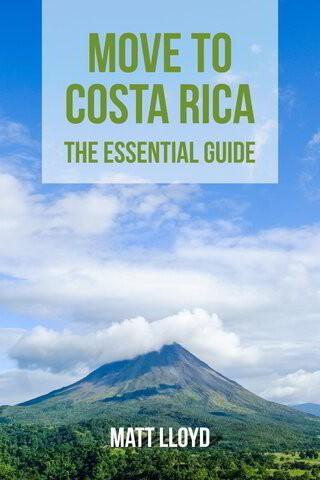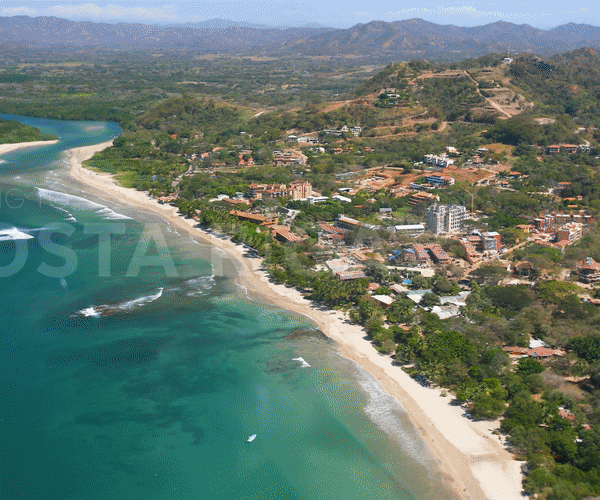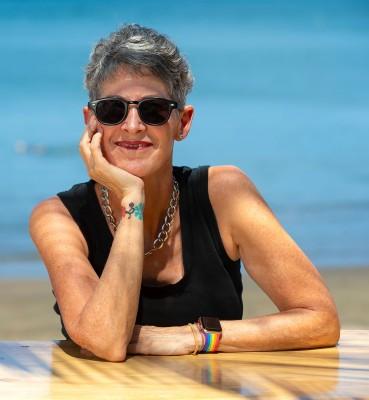Do you wonder how much it costs to live in Costa Rica?
If you do, you’re not alone.
“How much does it cost to live in Costa Rica?” is the #1 question we get from friends, family, and clients.
This was also our #1 question before moving to Costa Rica.
We read blogs, watched YouTube videos, and were constantly frustrated by the answer we got to the question. The answer was this…
“It depends.” Why wouldn’t anyone give us a straight answer?
Few people showed us numbers— it was always a roundabout answer that didn’t satisfy us.
In this blog, I will do two things:
- First, show you why where you live “depends.”
- Give you our real numbers for living where we do.
The Big Picture
Overall, Costa Rica is more affordable than both the U.S. and Canada.
It’s a developing country, and while it’s been growing in popularity, you can still find the cost of living here that will enable you to live with more discretionary income than you’re used to.
According to International Living Magazine, a single person can live between $1,600 and $2,000 monthly.
Some single people can get by on considerably less, while others will spend more. It all depends on lifestyle, both location and personal.
Some retired couples can live well on $2000 per month up to $2500-$3000. This total expense includes housing, transportation, utilities, food, medical, and entertainment.
Real estate is always a question. Costs will differ depending on whether you rent or own and where you choose to live.
For example, do you want a big house, a small house, a North American style, or a Tico (local) style? Do you want an older home or a newer home, or do you want to build one yourself? Are you renting or buying?
The variables are extensive. This is where the frustration can come in, but it’s true
Our Ex-pat Experience – The Cost of Living in Costa Rica
Rather than going on and on about “what ifs,” here is how we moved to Costa Rica and the costs associated with living here.
We sold all of our belongings. All of them—house, car, household items, clothing, etc. to make our move.
We only kept a 10 x 5 storage unit (which is only ½ full) for any items we think our two adult sons may want someday.
Other than that, everything went.
We bought this property with a Tico house and are building a digital nomad community for our clients.
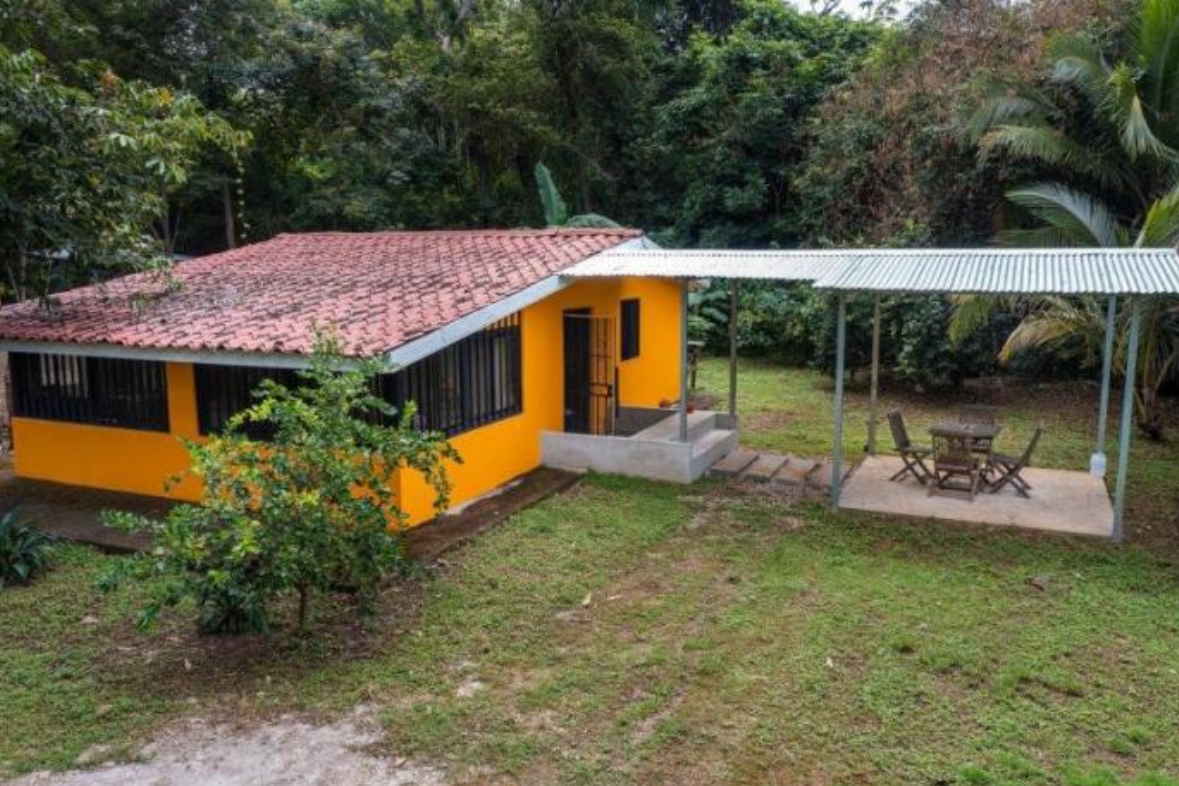
Our criteria for where we lived were the following:
- An easy flight to the U.S.
- Proximity to an airport
- Easy access to excellent and affordable healthcare
- Near the beach
- Walkable neighborhood
- Living among ex-pats and locals
Because we chose to live near the beach, we understood that our living expenses might be higher than the mountains or city.
We bought a property with a small casita .5 miles from the beach in the upper west region of Costa Rica in Guanacaste.
*NOTE—We are not retired and make money with portable incomes.
Our Expenses—
| The budget breakdown for Living .05 miles from the beach in Costa Rica | ||||
| Expense | Monthly Total | Paid Weekly | Notes | |
| Housing (OWN) | $20 | 2021 property taxes = $177. | ||
| House maintenance | $150 | Miscellaneous purchases, exterminator | ||
| Electricity | $125 | Varies based on air conditioner usage | ||
| Water | $20 | |||
| Housecleaning 1x/week | $60 | $20 | ||
| Internet | $65 | | Two for redundancy | |
| Cell phones x2 | $120 | | One plan + pre-pay for local number, T-Mobile International) | |
| Healthcare | $600 | | International insurance covers us both worldwide | |
| Transportation | $0 | | Car purchased in Costa Rica | |
| Food/Groceries | $300 | | Includes alcohol | |
| Clothing | $20 | | Don’t need much! | |
| Entertainment | $300 | 8x/mo. eating out, movies, etc. | ||
| Gas | $90 | |||
| Car maintenance | $125 | Tires, oil, miscellaneous – Costa Rica is tough on cars! | ||
| Fitness | $150 | Yoga and CrossFit | ||
| Misc | $250 | Doctor visits, dental, dog grooming, etc. | ||
| Cash savings for misc. | $200 | Miscellaneous, the unforeseen, travel | ||
| Total | $2,620 | |||
| *Monthly expenses divided by 4.3 weeks per month = $609.30 per week | ||||
What you spend per week and month in Costa Rica depends on a few things.
As with anywhere in the world, the location of your home will drive your expenses. If you live near the beach, considered more desirable for many, you will pay more.
Living by the water can also mean that you live closer to tourist areas, and tourist areas will always charge more because they’re selling to people on vacation with disposable income. So you will pay these prices as well.
How we do it — we live .05 miles from the beach, so we are subject to hire prices. Sometimes we want to do whatever we want, so we pay a higher price.
We keep our grocery shopping and eating bills down by shopping as the locals shop. We do this by purchasing fresh fish caught daily from the local pescaderia (fish market) and buying our fruits and vegetables at the fruit stand. For example, a kilo (2.2 lbs.) of Mahi is approximately $20.00.
*NOTE—We eat less here. We spend more time outdoors, it’s warmer, we are less stressed, and our appetite isn’t what it was in the states, so we pay less for food. The least expensive way to eat here is to adopt a “local” style.
There are also different places you can shop, which charge different prices. Depending on where you live, you can find any of these in your town or nearby.
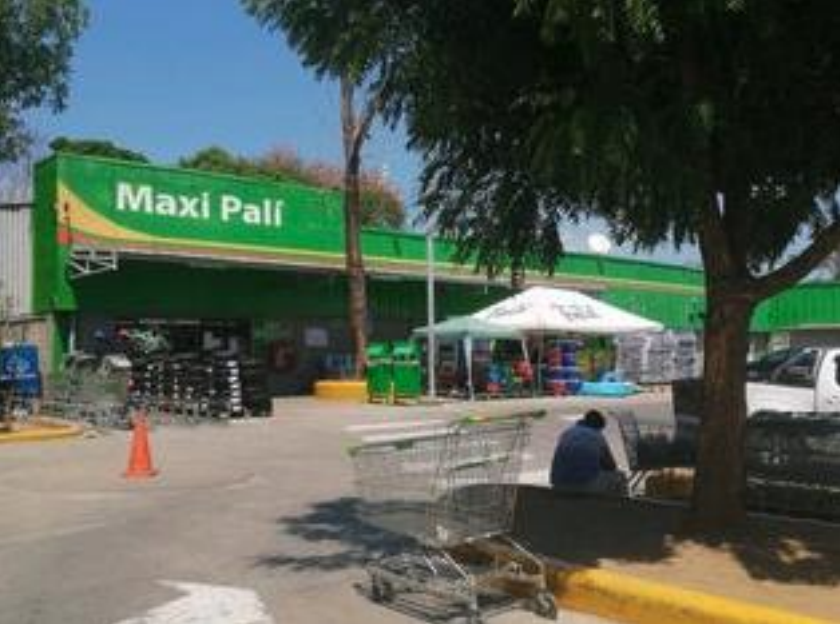
Popular grocery stores—
- Pali, owned by Walmart, is a budget supermarket with essential items.
- Maxi Pali, also owned by Walmart, is a more full-service market than Pali, offering some clothing, home goods, pet food, etc.
- Some other markets, such as Mega Super and Super Compro, are more middle-range in pricing.
- Auto Mercado is the most expensive market we’ve found. This is a Costa Rican-owned store that caters to ex-pats. You will find many more name-brand items that you’re used to, and you will pay more. We don’t shop at Auto Mercado because we’ve found everything we need at the other stores.
- All towns in Costa Rica also have their own small independent grocery stores. They generally start with the word “super” and end with a woman’s name, i.e., The Super Wendy. These are excellent for quick needs.
Here are the prices you can expect for some essential grocery items in Costa Rica:
| Item | Weight | Colones | Dollars |
| 0% milk | 1 liter/.26 gallons | 1,250 | $1.82 |
| White sugar | 1 kg/2.2 pounds | 850 | $1.24 |
| Broccoli | 1 kg/2.2 pounds | 3300 | $4.80 |
| White bread | 1 loaf | 1800 | $2.63 |
| Tomatoes | 1 kg/2.2 pounds | 2800 | $4.08 |
| Ground beef | 1 kilo/2.2 pounds | 3950 | $5.78 |
| Boneless Chicken Breast | 1 kg/2.2 pounds | 4500 | $6.54 |
| Toilet paper | 6 roll package | 2000 | $3.30 |
| Imperial Beer | 6 pack | 4620 | $6.73 |
| Water | 24 pack | 8390 | $13.84 |
A Final Thought
There is no magic answer, and you must do your work emotionally, psychologically, and pragmatically.
However, the above budget is accurate. Moving to Costa Rica reduced our cost of living by two thirds.
This was a choice we made to give us the time and financial freedom to live the life we wanted.
When people ask us, “how’d you do it?” this is what we say:
- Determine what life you want
- Pay attention to your ways of thinking that have kept you where you don’t want to be
- Be open to new possibilities
- Trust in your abilities and skills
- Embrace both your wins and losses because there’s learning in both
- See help from experts and others who have already done what you want
- Do your research
- Don’t wait if you’re ready to go, and most importantly,
- Don’t let fear stop you from moving forward.
Pura Vida! 🌺

